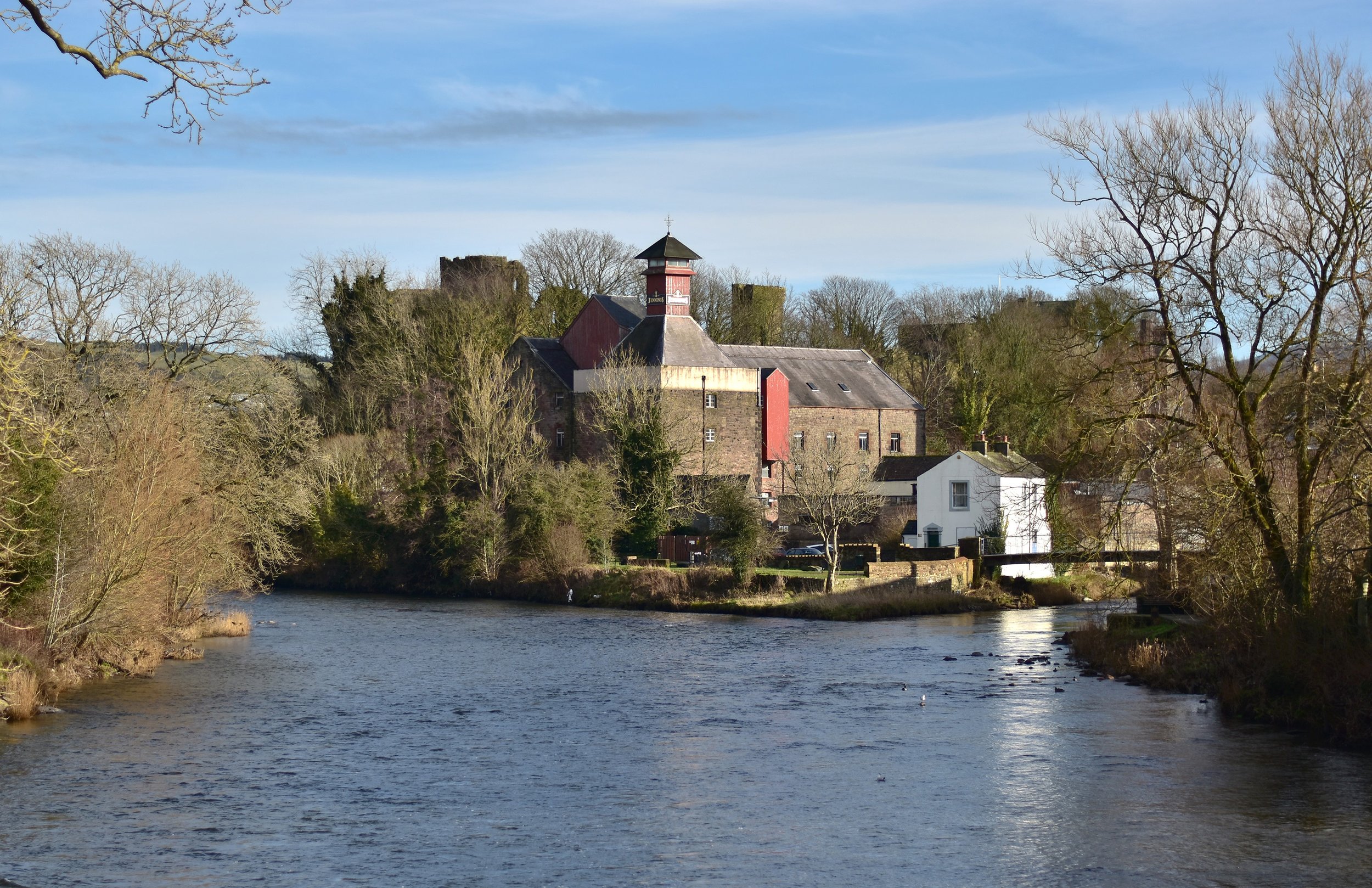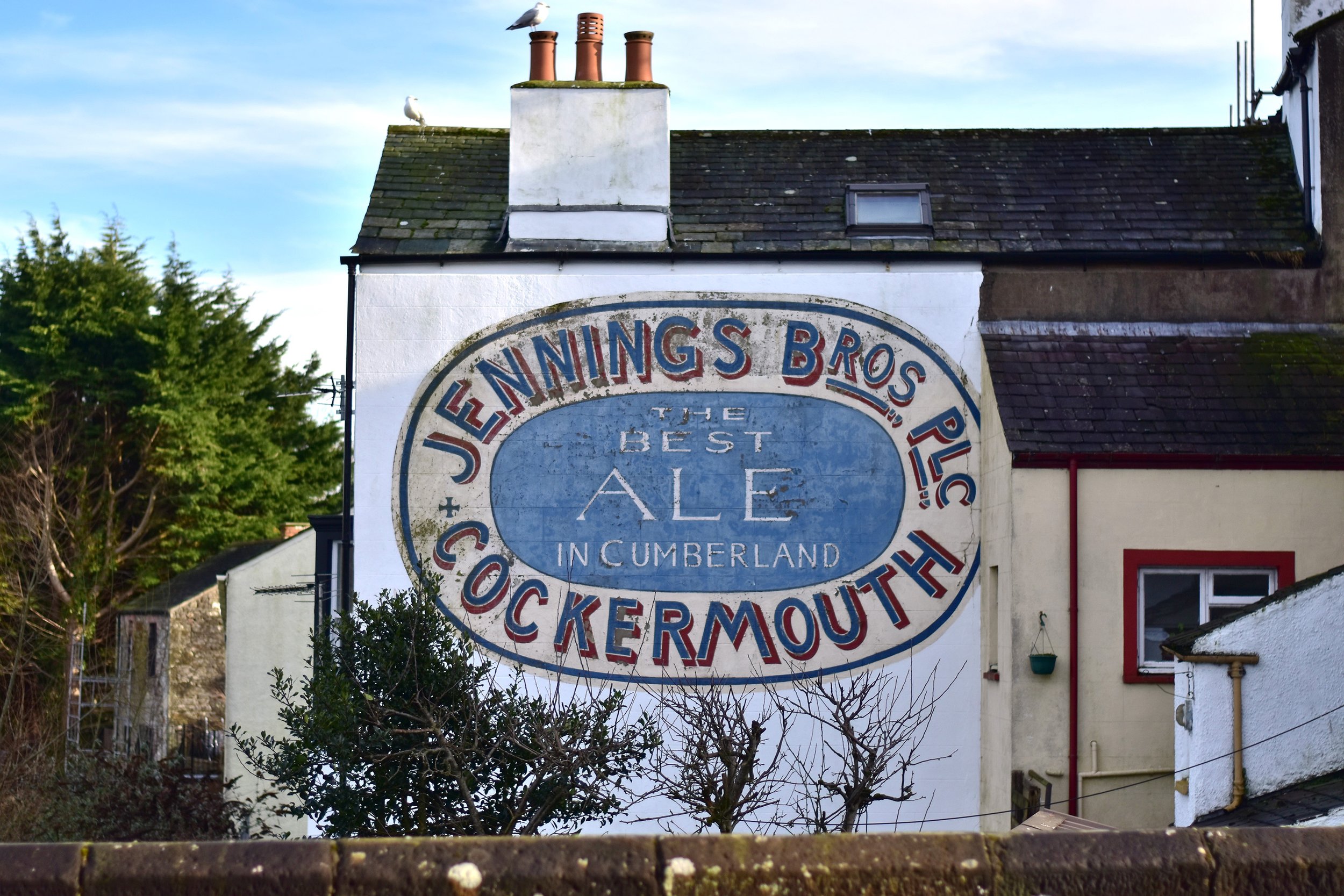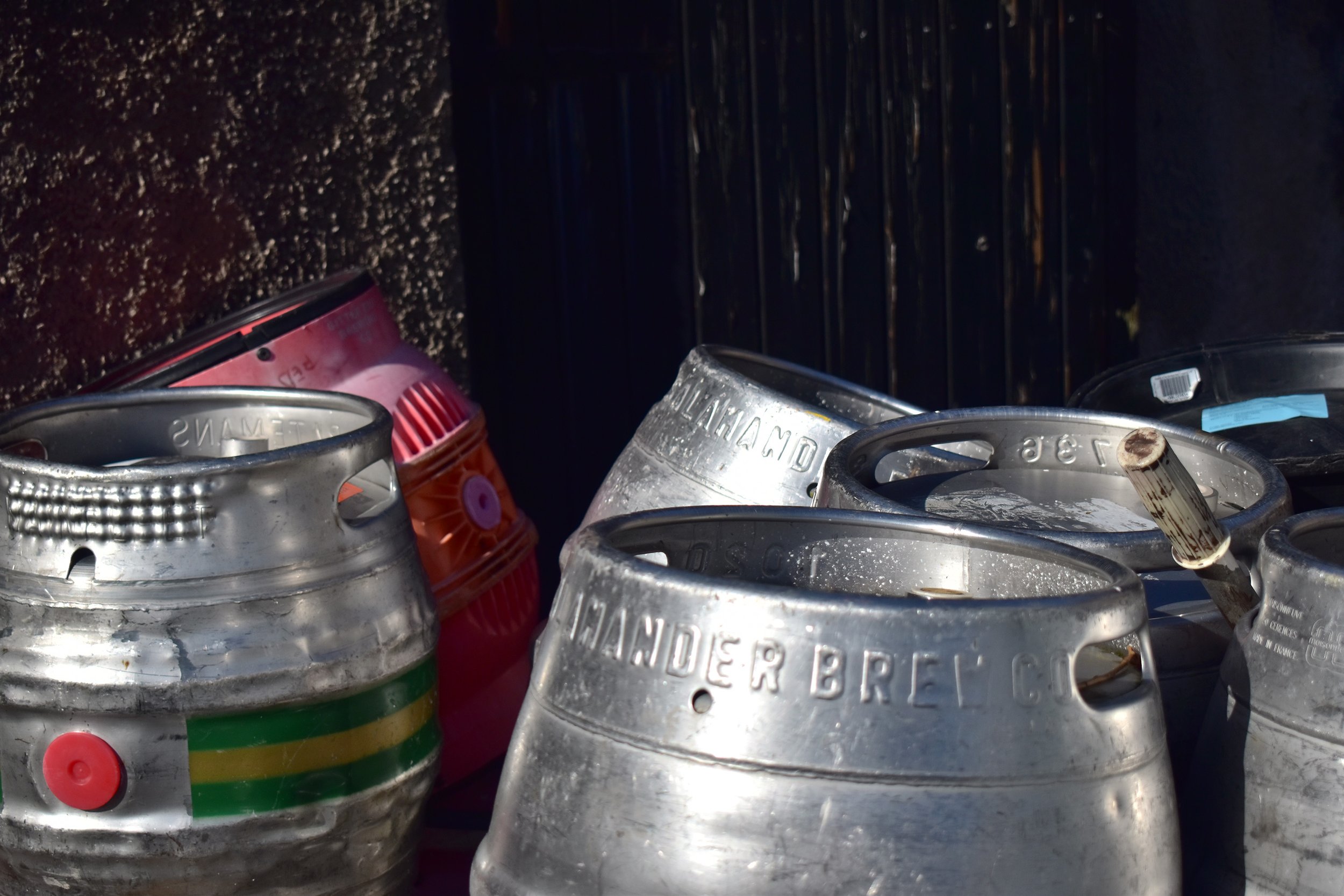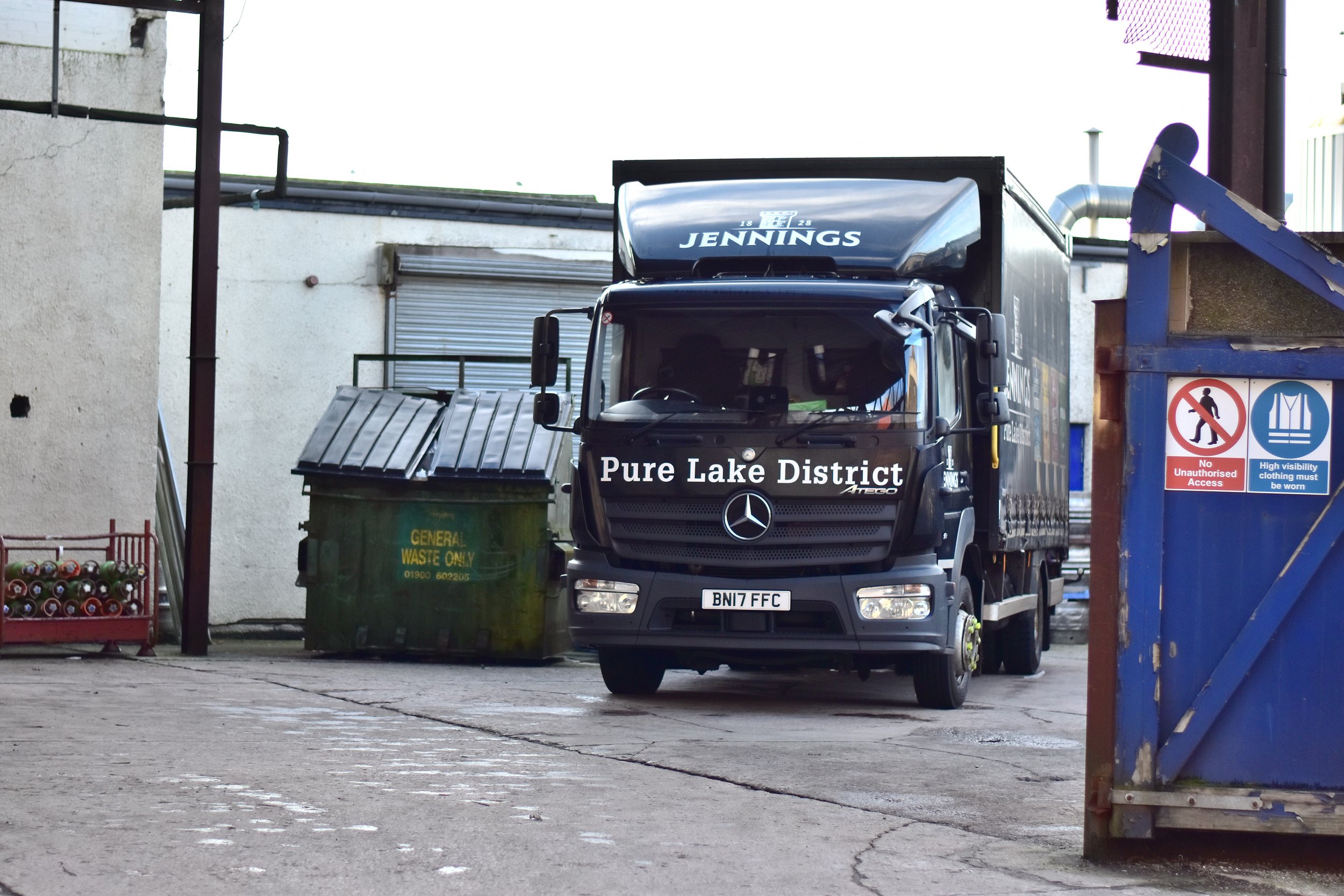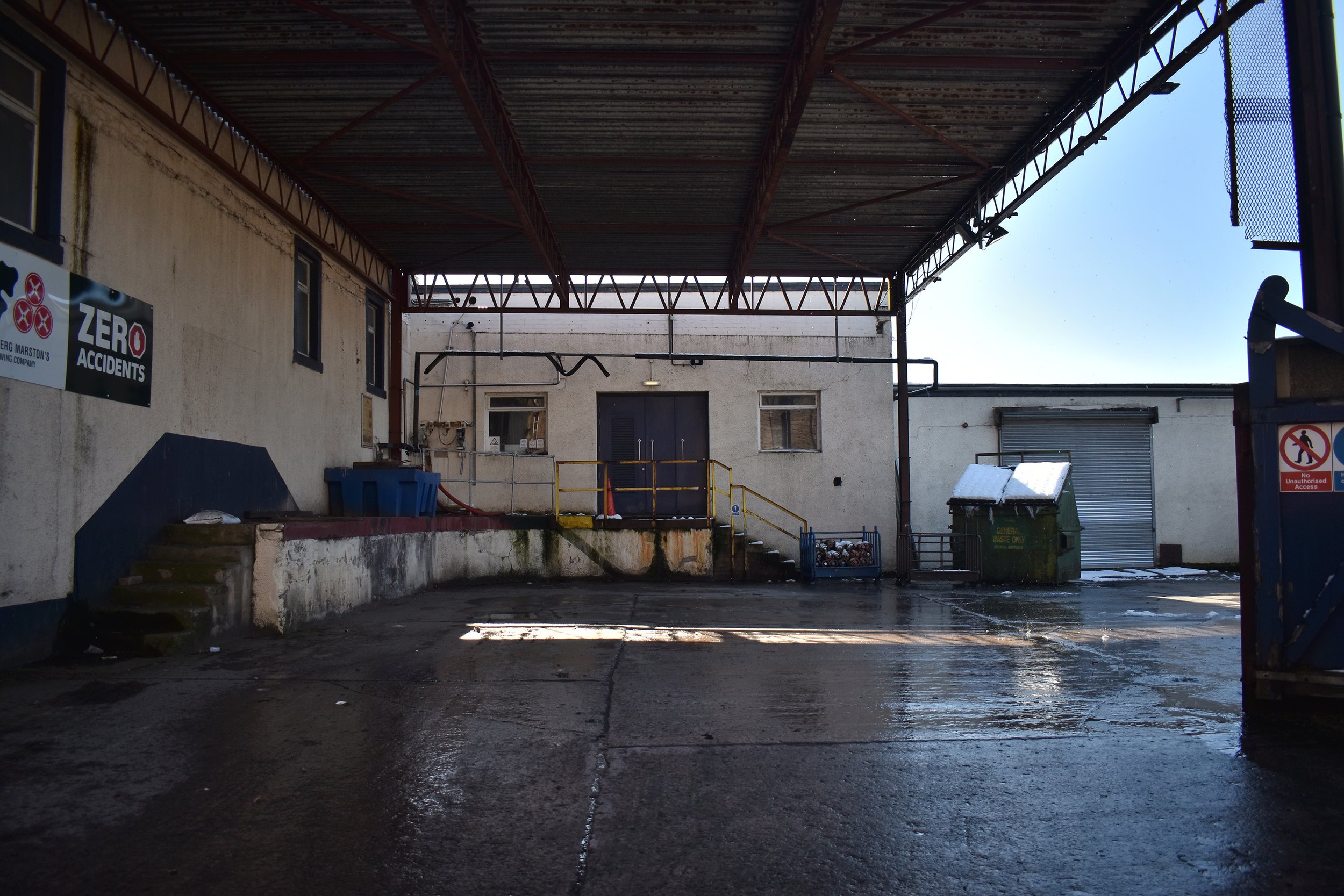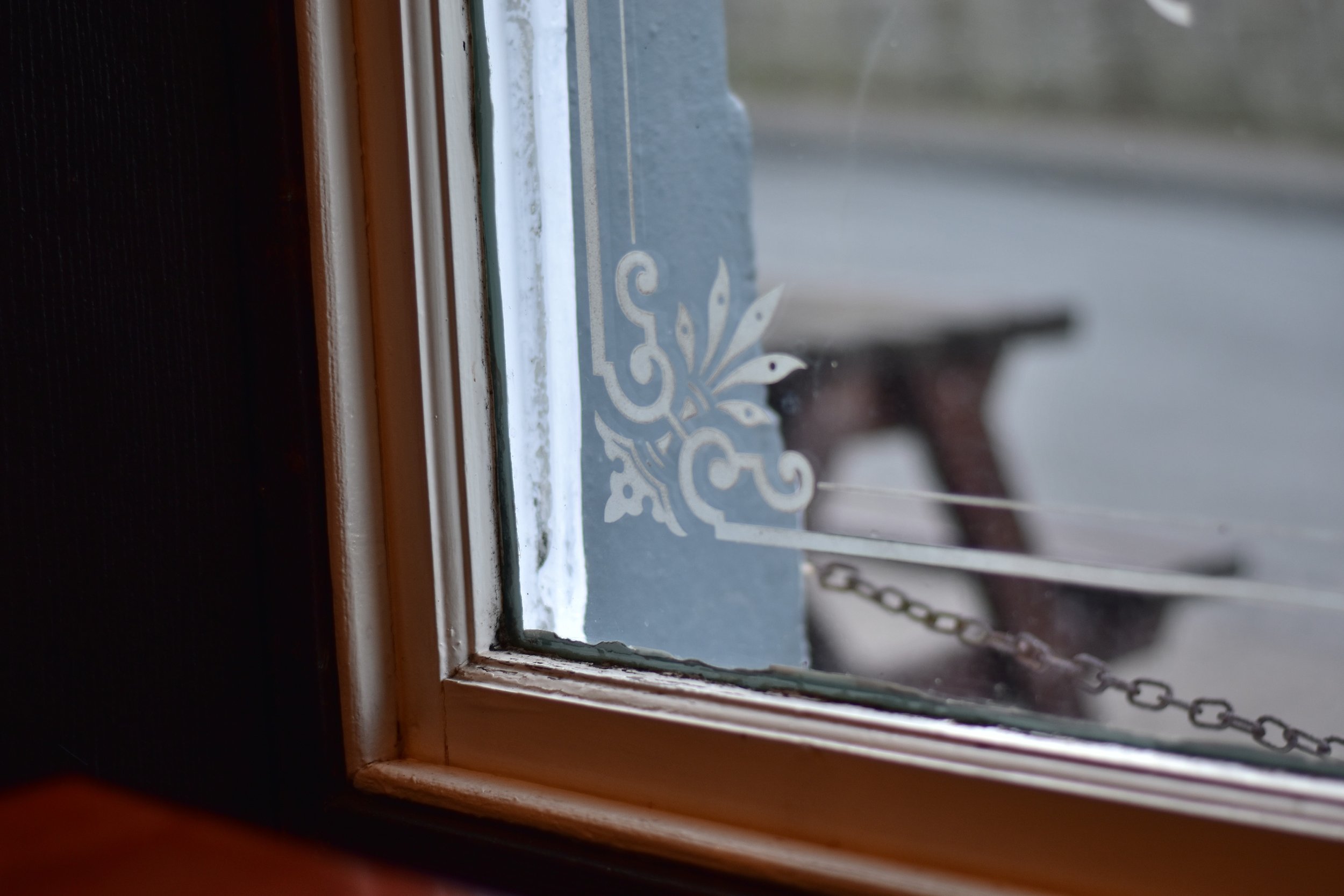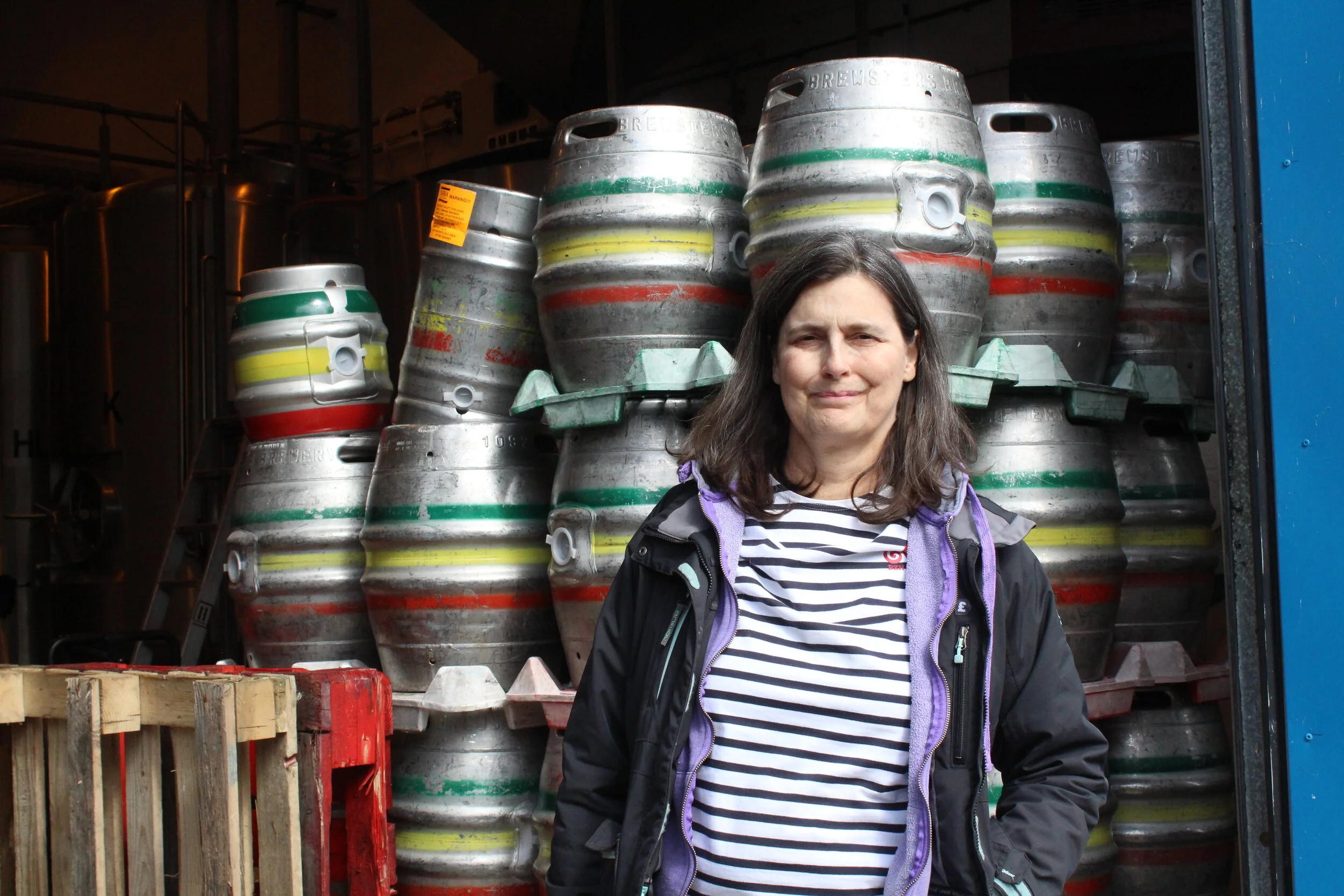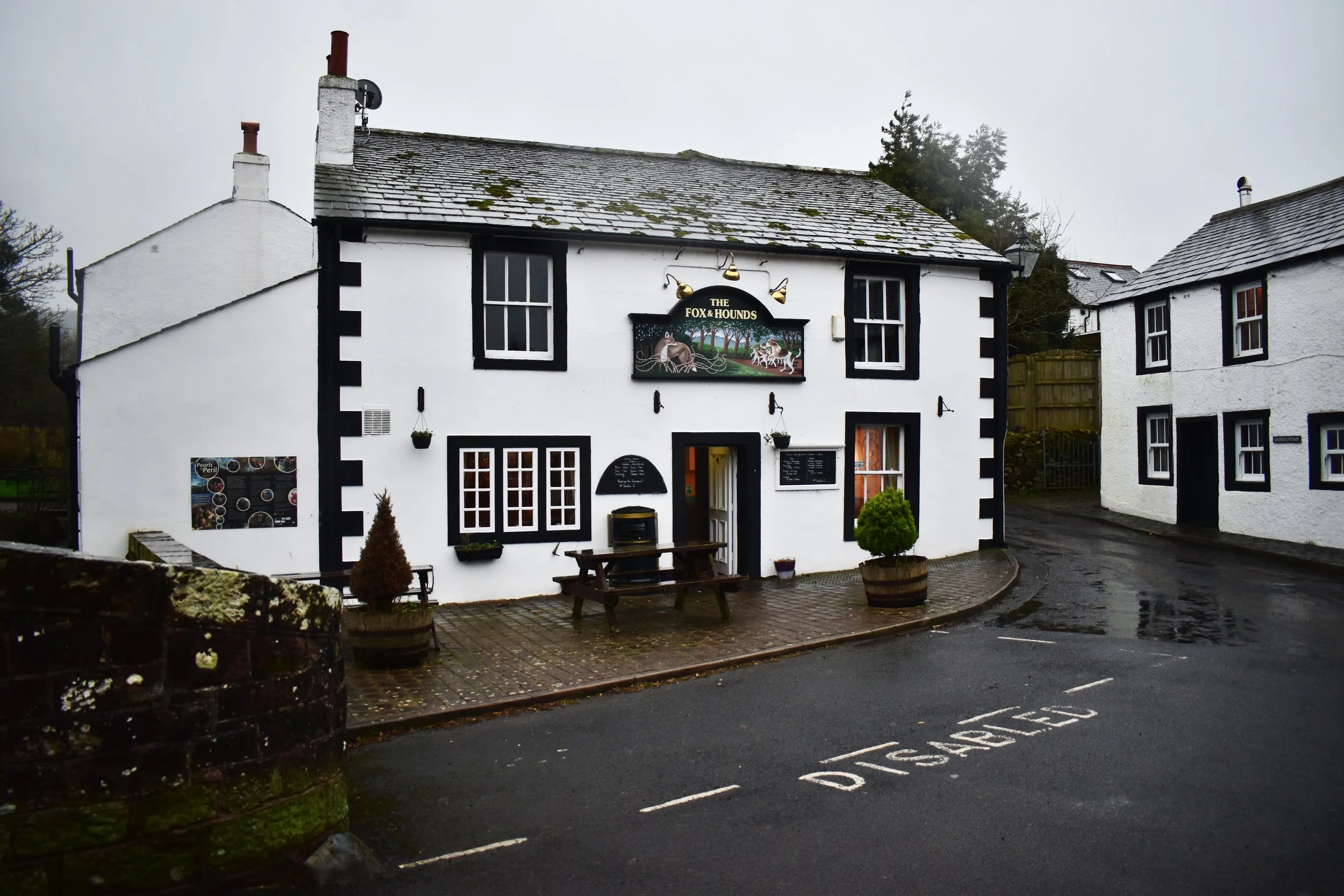The Rise and Fall of Jennings Brewery — Pure Lake District, Now Made in Staffordshire
There has been a significant change within the town of Cockermouth. One that may not be apparent to all. Fells and lakes remain a stone’s throw away, sheep still dot the fields, and the town’s coffee shops are busy as ever. Rural life continues.
Unfortunately, it’s in the town’s most favoured institution that this new reality cannot be escaped. For those unfamiliar with the area in question, I refer to the Cumbrian pub, where one can smell the must of drying raincoats, feel the warmth of a fire in the grate, and order a hearty steak and ale pie all twelve months of the year. As for your pint? It's considered robbery if you don’t get decent change from a fiver.
Photography by Jacob Smith
I grew up in weather-beaten pubs like these, as did my father and his father before him. If you were local, you would say we were hefted to the land, such is our family’s connection to this obscure north-western part of this obscure north-western English county. Until recently, when it was closed by parent company Carlsberg Marston’s, there was a brewery hefted to this land too. A brewery called Jennings.
***
John Jennings, the son of a maltster, founded Jennings Brewery in the tiny Cumbrian village of Lorton in 1828. Thanks to the Industrial Revolution, new breweries were not wholly unique enterprises during this time. Yet, as its high-quality ale gained renown beyond the local vicinity, Jennings began to set itself apart from its competitors. In 1874, the brewery moved from Lorton to a bigger site in the neighbouring town of Cockermouth to keep up with growing demand.
Castle Brewery, as it became known, stood in the crumbling shadow of the town’s Norman fortress, upon the confluences of two rivers: the Cocker and the Derwent. This location provided the brewery with access to the finest Lakeland water. An attribute that would define Jennings’ beers for centuries to come.
135 years later I made the same journey, graduating from primary school in Lorton to secondary in Cockermouth. As part of my daily commute, I passed through the active grounds of Castle Brewery. The stench of boiling wort, sound of beeping lorries, and sight of gleaming kegs became familiar to me. More often than not, I walked to school with a hand clasped over my nose.
Although too young to partake with regularity, I would have been lying if I claimed to not know what those kegs held. As a child, I had grown familiar with the range of Jennings beers by tasting the foamy-white, faux moustache that I wiped from my father’s upper lip. During my teenage years, I started taking illicit sips of my own. The beer I tasted more than any other was Jennings’ original brew, known simply as ‘bitter’.
While still an adolescent, I thought of bitter as something you grimaced through in pursuit of those elusive chest hairs. But, as my palate developed, I began to delight in the nutty, malted flavours hidden in the ale’s dark body. Its moderate alcohol content of 3.5% ABV and a slightly dry finish only helped matters.
Due to a reliance on traditional brewing methods, heritage grain, and British hops, it wasn't just a cohort of my contemporaries I joined when discovering a love for bitter, but generations of Cumbrians. The county’s most famous names, Wordsworth and Potter among them, likely knew what it was to drink a pint of bitter. More importantly, so did the countless others whose lives stretched back to the Victorian era and whose names have long been lost to time. Such history stokes an appreciation for the permanence of food and drinks in an ever-changing world. A permanence that is itself, desperately fragile.
Over the decades, Jennings did diversify their offerings. It introduced the likes of Cumberland, a refreshing golden ale, and Cocker Hoop, a pale ale that was once voted the best in Europe at the 2013 World Beer Awards. All in all, Jennings was responsible for producing over 30 different beers, each hewn from the customs, culture, and tastes of Cumbria.
The brewery’s first great hardship came in 2005 when Jennings was acquired by a brewing group called Wolverhampton & Dudley. Reception to the news was initially frosty; many locals warned that W&D—which morphed into Marston’s PLC during 2007—only wanted ownership of the 100 plus Jennings pubs that operated in the county. Castle Brewery, it was feared, would be surplus to requirements.
Happily, these fears were misplaced. Four years after the acquisition Castle Brewery was still working away. Then, in autumn 2009, Jennings faced another crisis. Over the 17th and 19th of November, Cumbria experienced 456.4 millimetres of rainfall. Towards the end of this 72 hour period, parts of Cockermouth, including the brewery grounds, were two metres underwater.
When the flood water finally receded, the desolation of Cockermouth became apparent to all. In the weeks that followed, my commute didn’t lead through bustling brewery grounds but past leering shops with smashed windows and rotted frames. The only refurbished property, looking like a newly minted coin amidst old coppers, was a branch of Greggs. Perhaps, people whispered, only national chains can grow on land that has become so barren.
““The breweries that seem to be doing well are the ones who are producing beer styles that are appealing to a new audience.” ”
But Jennings’ near two-hundred-year-old roots run deep, and Marston’s, at a time when a less passionate company could have blamelessly closed the brewery, doubled down. Not only did Marston’s commit to reopening the flooded site, but it also brewed several Jennings beers at its headquarters in Burton-upon-Trent during the interim. While Cumbrians might not have been in their own homes, many could at least take solace in their local beer.
By reopening Castle Brewery, Marston’s cemented itself as ‘one of the good guys’ in the minds of many beer inclined Cumbrians. A sentiment that is shared by Nik Antona, National Chairman of The Campaign for Real Ale (CAMRA), an organisation which seeks to protect and encourage the diversity of British alcoholic beverages and pub culture.
“They're [Marston’s] the biggest cask beer producer in the country and probably the world when you add up all their production,” Nik tells me, his infectious enthusiasm evident over the phone. “They really care about it.”
After the 2009 floods, Jennings went from strength-to-strength. A number of the brand’s beers won significant awards from organisations including the International Beer Challenge, World Beer Awards, and CAMRA. But, the beer market is notoriously fickle and a few short years after this success, Jennings found itself distinctly out of vogue.
“My personal view is that some of the brands that have suffered, not just in the Marston’s estate, but generally, are old fashioned styles.” Nik says, “If you go to the craft beer world, a lot of which is cask beer, the breweries that seem to be doing well are the ones who are producing beer styles that are appealing to a new audience.”
He goes on to explain that, in the last decade, these beer styles have tended towards citrusy and hoppy, usually in the style of IPAs. Quite the opposite of Jennings’ core range of malty ales.
However, in Cumbria, a land where little seems to change and none of it with any haste, consumer trends are generally seen as something to acknowledge rather than fear. After all, so many of these fads pertain to the city dwelling South, and not the rural North. We’ll let others worry about what’s new, was the general feeling. Just as long as us Cumbrians could still enjoy our regular pint of bitter.
Unbeknownst to many, the majority of Jennings beers were really struggling to sell. So, in October 2019, Jennings did the previously unthinkable and stopped brewing classics like Cocker Hoop, Sneck Lifter, and Crag Rat. Instead, they decided to focus on four beers. Two new ones: Atomic Theory, an IPA and Fine Line, a hoppy pale ale. A couple of veterans got a makeover: Night Vision, became the new name for our beloved bitter, alongside Cumberland, which survived relatively unscathed.
This rebrand came complete with modern and, in many peoples’ views, inauthentic designs. Joshua Young, a born and raised Cumbrian who is director at Cockermouth-based bottling plant, Cumbria Contract Bottling, explained what many were thinking at the time.
“To change the name of beers that meant so much to people was a bold move,” he tells me. “I don't think it was really in keeping with what the brewery was, for the local people anyway. Jennings is a real ale producer, blondes, bitters. It isn’t a hoppy IPA kind of brand. That’s not who they are [...] For the local people, I don't think anyone liked it. So, it was probably always doomed to fail here.”
Even after the disastrous rebrand there were rumours that the old classics would be brewed and sold seasonally. These hopes were dashed when Covid struck. Reeling from the pandemic, Marston’s made the decision to merge with Danish brewing giant Carlsberg in a £780 million deal during May 2020. This time, even the most optimistic Cumbrian agreed that Castle Brewery’s days were numbered. A sentiment that Carlsberg’s track record did little to allay.
“Carlsberg has a reputation for getting rid of the local brewery,” Nik says. “A prime example would be Tetley’s. They had a brewery in Leeds and when Carlsberg acquired the Tetley's brewery and brand it wasn’t many years later that suddenly they got rid of the brewery in Leeds and Tetley’s became a nomad.”
In September 2022, the newly formed Carlsberg Marston’s Brewing Company (CMBC) announced the closure of Castle Brewery was to take place on the 1st of October, 148 years after it opened.
When asked why Marston’s would agree to such a thing, Nik had a cutting reply: “Unfortunately, Marston’s are now under the control of Carlsberg to a certain extent… and maybe they’re looking at it with a more financial view. Accountants are brewing, if you like, rather than the brewers.”
CMBC declined to comment.
***
At the time of writing, CMBC has committed to brewing Jennings’ Cumberland Ale at Marston’s site in Burton-upon-Trent. Despite the brewery’s pedigree in producing regional cask ales, there are some significant barriers to authentic Jennings beers being produced, most notably, the water.
“Water is the most important ingredient as it usually makes up 95% of what you are drinking,” Nik says, “The problem you are going to have with Burton water is that you may well get that sulphury smell off of a pint of Cumberland ale now, which is not something you will have had in the past. Because, obviously, Lakeland water is very different to Burton water.”
He later assures me that CMBC will be able to create a close imitation of any Jennings beer if they so choose.
Close imitation or not, many Cumbrians are of the mind that if your slogan is ‘Pure Lake District’, then brewing in Staffordshire isn’t your best bet. In fact, when I visited the pubs of Cockermouth on a mild Friday night, I found taste to be of almost no concern to the town’s beer drinking public.
“I think a lot of Cumbrian people, especially those local to Cockermouth, will turn their back on Jennings now it's not brewed in the county anymore.” Joshua says, somewhat diplomatically. After a few different conversations over as many pints, I could have easily swapped his sentence for several, more colourful alternatives.
““I think a lot of Cumbrian people, especially those local to Cockermouth, will turn their back on Jennings.””
In The Castle Bar, a freehold pub where these conversations took place, the public were spoiled for choice when it came to Cumbrian beer. Some chose to sip on a pint of Swan Blonde from Bowness Bay Brewery in nearby Kendal. Others enjoyed the hyperlocal Loweswater Gold. However, all preferred to find a new pint than to support a brand that they felt was Cumbrian only in name.
Yet, the dearth of freeholds and prominence of Marston’s linked pubs in northwest Cumbria means Jennings will be unavoidable for many consumers. “To see local pubs which are tied to Marston’s having to still serve Jennings beer even though it's no longer brewed in Cockermouth is such a shame.” Joshua says. “There are so many other good local breweries that will never get a look in.”
Nik tells me that Marston’s “understands the cultural importance of Lakeland beers in The Lakes”. He has been assured that Marston’s will be sourcing local Cumbrian beers for their pubs in the Lake District. Whether this promise is kept over the long term remains to be seen.
The closure of regional breweries like Jennings is not a rare event these days. All across the nation, breweries that have long been linked to local communities are being faced with two choices: sell up or close down. Many see this as the unavoidable endpoint of an economic disaster that began with Covid and has most recently involved a ballooning cost of living crisis.
“We are seeing an imperfect storm at the moment,” Nik says, “and unfortunately, I have seen a list of something like 30 regional breweries, including Jennings, that have closed or will be closing by the end of the year [2022] because of the increased costs [...] If there aren't any more subsidies post April [2023], then a lot more of these businesses will close. Therefore the choices on the bar will go. And it won't be the Carlsberg brands that disappear, or the Doom Bars or the Fuller’s… it will be the smaller beers who haven't got the capital to keep themselves afloat.”
Back in Cockermouth, irony has added to the feeling of exasperation. British bitters have recently swung back into fashion. A cruel “I told you so” moment that appears to have come far too late for both Jennings and Cumbrians.
As much as it hurts my heart, I must get used to separating the two.


